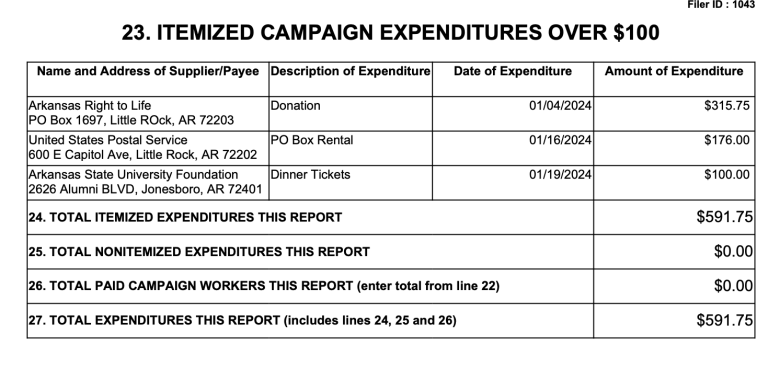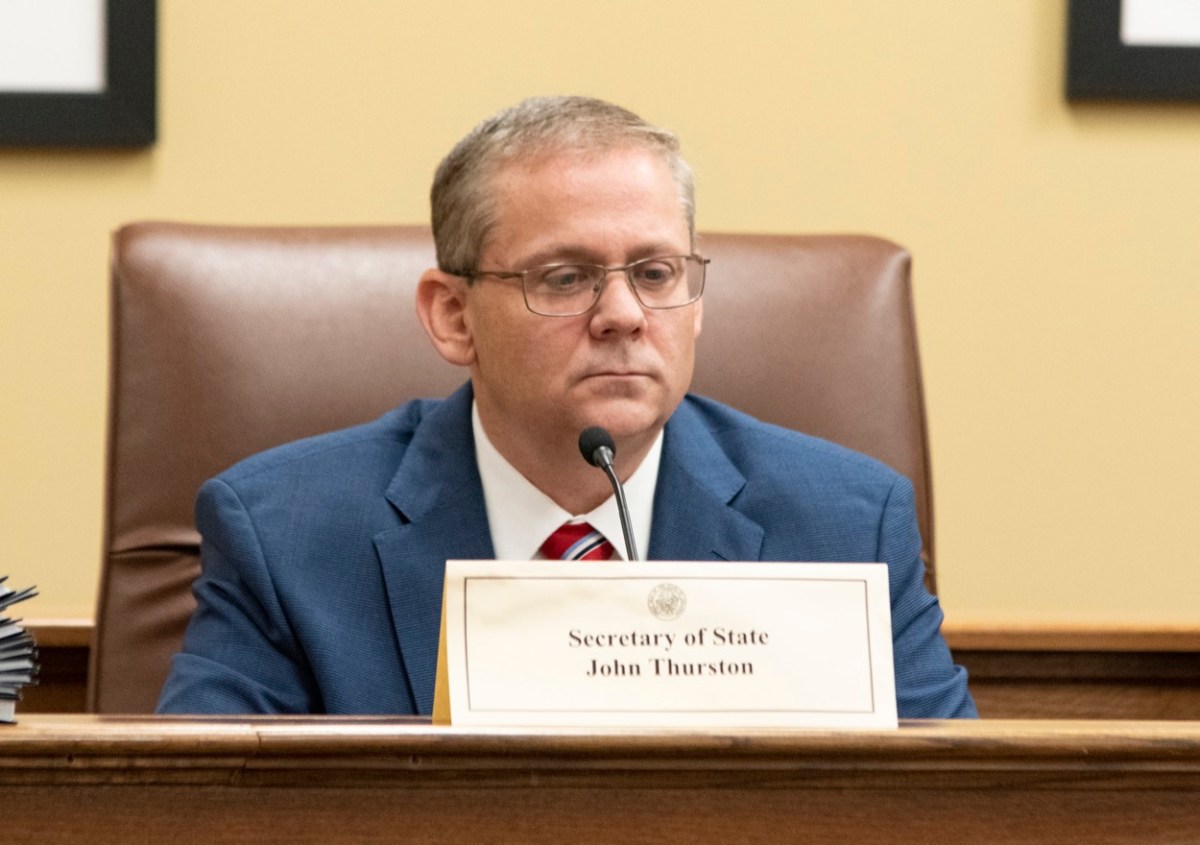Secretary of State John Thurston did nothing wrong and followed the law when he rejected the Arkansas Abortion Amendment on July 10 without counting signatures on the petition, according to a response filed by Thurston today in the lawsuit challenging his decision.
On July 5, organizers with Arkansans for Limited Government, the group behind the abortion amendment, turned in a petition to Thurston’s office with signatures from more than 102,000 Arkansans. They required 90,704 to qualify their measure for the November ballot. Thurston rejected the petition five days later, saying the group had failed to include a piece of paperwork with their petition related to paid canvassers. Though most of the group’s signatures (about 88,000) were gathered by volunteers, it also hired paid canvassers who collected another 14,000. Arkansans for Limited Government needs at least some of those paid canvasser signatures to count in order to meet the 90, 704 threshold.
Arkansans for Limited Government sued, and late last week, the Arkansas Supreme Court ordered Thurston to respond to the allegations in the lawsuit. They also ordered both sides to file briefs in the case by this Friday, Aug. 2.
Thurston’s answer to the lawsuit acknowledges the signature numbers submitted but stands by his decision to reject the petition based on the paperwork issue. It is, essentially, the same argument Thurston and Attorney General Tim Griffin have been making since the lawsuit was filed.
Thurston’s response also appears to tip his hand on a broader, more disingenuous argument he likely plans to make.
According to Thurston, the Supreme Court does not have jurisdiction over this case because he “has not made a determination of the sufficiency” of the petition. Under Arkansas law governing ballot initiatives, “sufficiency” review is the second step in the process by which the secretary of state’s office determines whether a proposal qualifies for the ballot. (The first step is an “initial count,” as opposed to the more thorough process of vetting signatures during the sufficiency review.) The problem is that Thurston’s office reiterated last week that he would not proceed to that stage until he receives further instructions from the court.
Essentially, Thurston is saying that the Supreme Court can’t review his decision to disqualify the amendment until he has reviewed the sufficiency of the submission, but he’s not going to do that review unless the court tells him to … which they can’t if they lack jurisdiction over the matter. That’s quite a catch, that Catch-22.
Thurston’s initial decision to reject the amendment was inconsistent with Arkansas law governing the initiative process. While the attorney general has struggled over the past three weeks to justify Thurston’s decision, why Thurston would do something so obviously contrary to the law remains unanswered. But one clue might be this donation Thurston made to anti-abortion activists Arkansas Right to Life from his campaign funds back in January:

Regardless of whether Thurston’s improper rejection of the proposed amendment was for political reasons or simply because he doesn’t believe in abortion is sort of irrelevant, however. In either event, he should not be abusing his elected position to achieve his personal goals.

